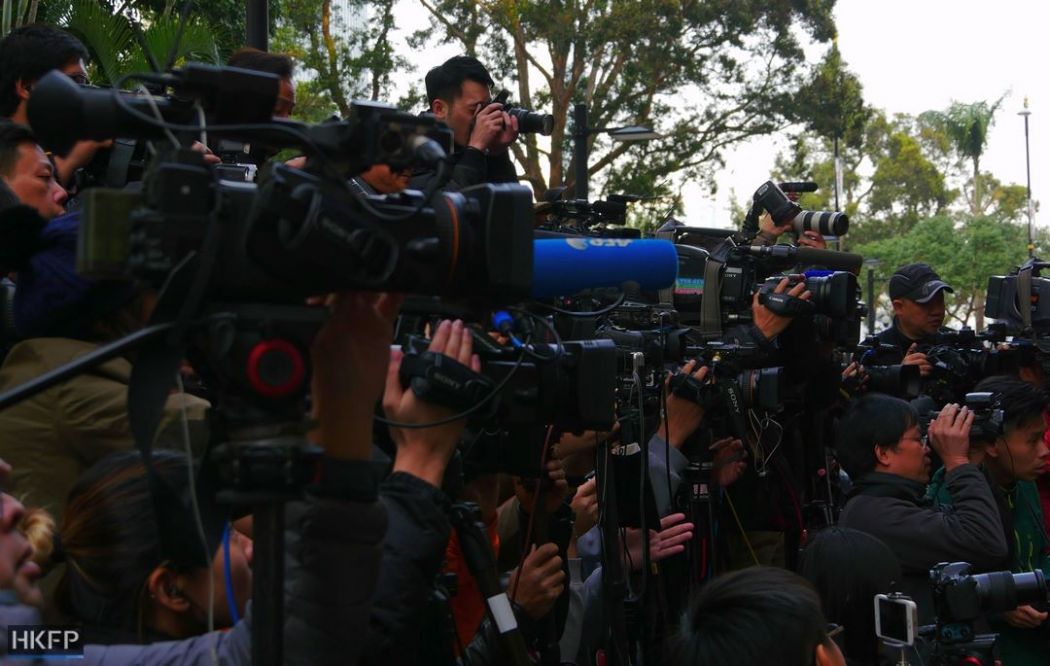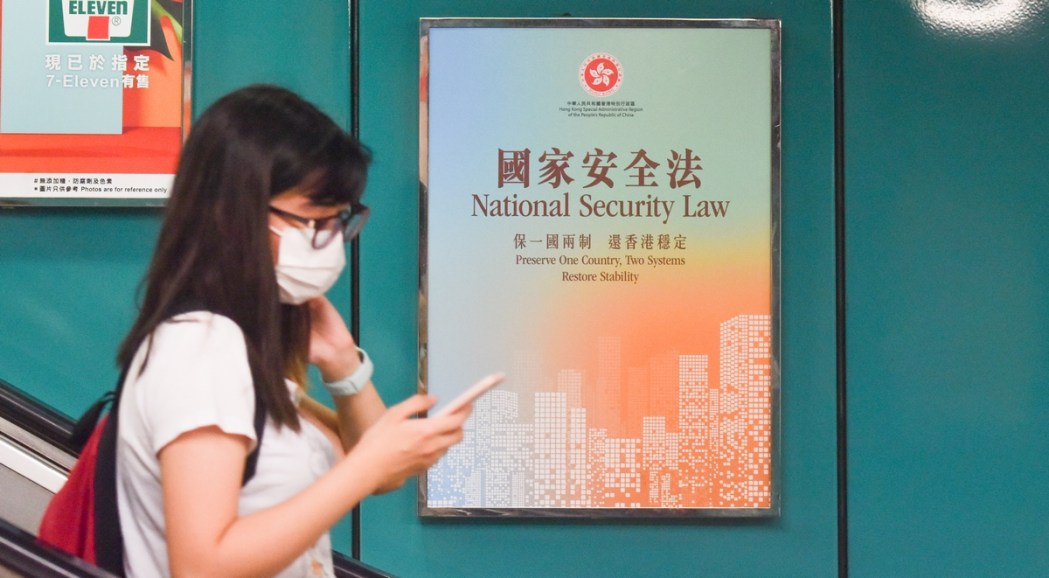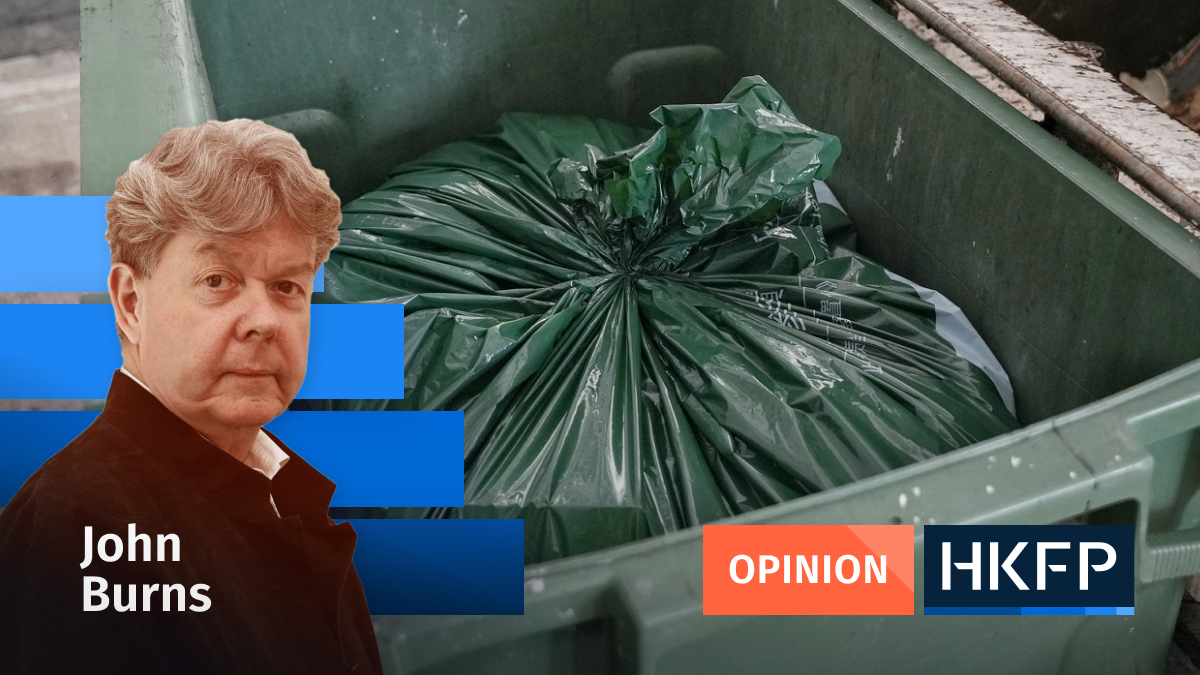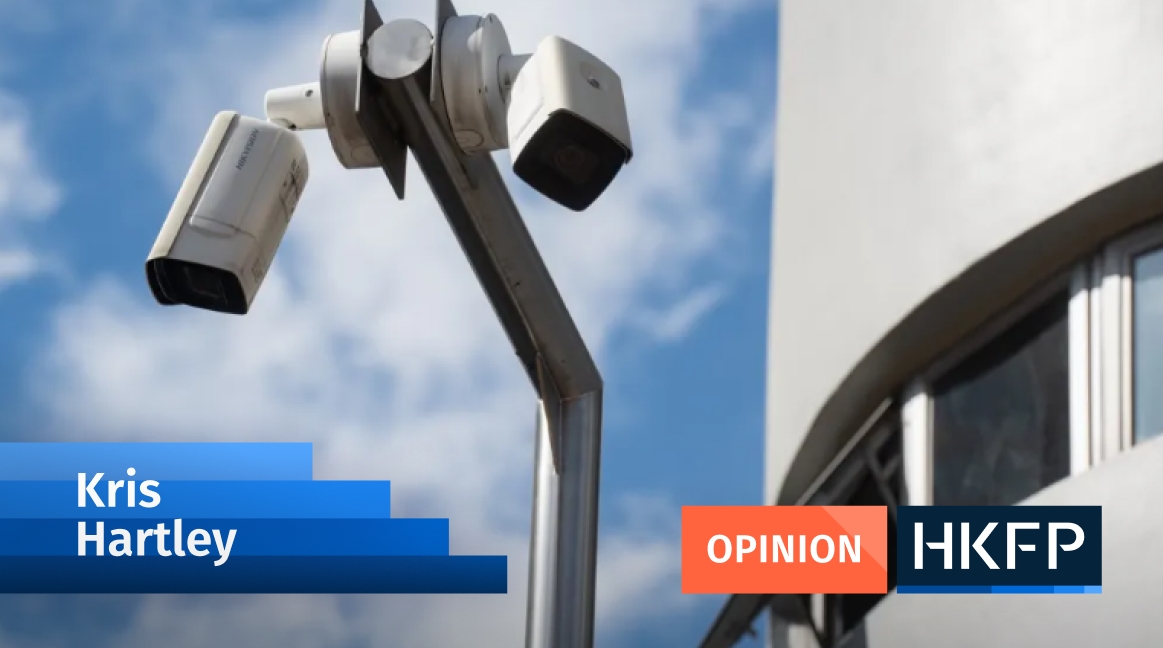Now here is a puzzle. On the one hand we have government officials assuring us that all is well with the Hong Kong media. Carrie Lam says recent troubles at some outlets have had no “chilling effect.” The Secretary for Justice says the government is merely enforcing the law and “cherishes press freedom.”
At the same time there are unmistakable symptoms of media misery. Journalists say they have gone from “Fear” to “Son of Fear” to “Fear Unchained”. Before the next sequel, some of them are leaving the theatre.

Indeed, even as officials were assuring us that all was well, more media outlets were closing their doors, saying that after the swoop on Stand News they no longer felt safe in the business. Reporting the last two departures The Standard, ignoring the official line that all this has nothing to do with politics, cheerfully announced the “End of the road for two more pan-dem outlets”.
How did this big gap in perceptions arise? There is a general tendency, with which many journalists are familiar, for people like lawyers, academics and senior civil servants to think they know all there is to know about the media.
This starts from the view that “I could have done this if I had wanted to,” which is true. News work requires a variety of different qualities but anyone who is literate and interested can find a slot to suit them somewhere.
Hong Kong newspapers were particularly eclectic in the old days. I worked with people who had been policemen and people who had been convicts. Some of my colleagues had left school at 16 and some of them had PhDs. Many of the expats had been English teachers, because this was the traditional second job of fresh grads arriving in Hong Kong to try their luck. The first job was bar work while they did the British Council teacher training course.

But journalism does require training and practice. The fact that you could have done it does not mean you have an informed opinion about it now. You could have been a brain surgeon but if you didn’t do the training that doesn’t make you an authority on the matter.
Of course all media consumers are entitled to their own views of journalists’ output. You’re paying for it. As Samuel Johnson wrote: “The drama’s laws the drama’s patrons give, for we that live to please, must please to live.”
Knowledge of the way the business works, on the other hand, must be acquired, not assumed. It is almost axiomatic that if you listen carefully to the judgment in a media case there will be a moment in which it becomes quite clear that the judge has no idea how we work.
It is all very well for the Secretary for Justice to say that the national security law is perfectly clear. That may, for lawyers, be true.

The view from the sub-editors’ desk is different. I have dabbled in journalism for nearly 50 years and for most of those years I knew the applicable law well enough to keep out of trouble. I was an investigative editor for three years; as a columnist my comments on the colonial government were sufficiently critical to prompt a deliberately planted rumour that I was a Communist, a pleasing irony. I have never been successfully either sued or prosecuted.
I have read the national security law and seen what lawyers have done with it. I no longer feel able to tell one way or another whether a story may safely be published or not.
True, this is a new law, and new laws often go through a period in which people are not quite sure what they mean. Hints arise from the early cases, but owing to the Dickensian speed at which the Department of Justice operates we haven’t really got any of those yet. Even the exact meaning of “Liberate Hong Kong, revolution of our times” awaits an appeal, pending which just putting it here produces a little frisson of anxiety.
In the meantime the weight of the law appears to fall particularly heavily on some media outlets and not on others. It is quite understandable that distant observers, deprived of a close-up view of the department’s commitment to fairness and human rights, should jump to the conclusion that the government is simply suppressing critical voices.

This is reinforced by some procedural eccentricities which have crept in of late. What they amount to is that for a media organisation just being accused of a violation is a death sentence.
Ronny Tong made one of his less inspired observations after the demise of Stand News that the government had not closed it, and he was a bit puzzled as to why it had closed itself.
Let me try to help out here. The chief editor has been arrested and jailed. The computers and other office equipment have been seized by the police. The bank account has been frozen, so it is impossible to pay the surviving staff. It is impossible to continue publishing with no computers and no staff.
It may be that the government hopes to see an independent media sector manned by eager volunteers dispensing news via flocks of highly trained pigeons. But news web sites deprived of their equipment, money and staff are bound to close. What else are they to do? This is an alarming development because it occurrs before anyone has been convicted of anything.
It is interesting to compare this with the experience of other places which, as we are constantly reminded, have their own national security legislation and also legal limits on media.

The last time editors in the UK were jailed for offences committed in their line of work was in connection with the News International phone-hacking scandal that led to the closure of the News of the World in 2011.
Prior to that it was, I think, in 1949, when the editor of the Daily Mirror served three months for contempt of court. The newspaper had described John Haigh, the Acid Bath Murderer, as a murderer while his trial was still in progress.
Two years earlier, the then editor of the Morecambe and Heysham Visitor – later the scene of my first dip into journalism – was prosecuted for seditious libel. He was acquitted by a jury.
In both cases no equipment was confiscated, no accounts were frozen, and no employees had to be fired. Both the Daily Mirror and The Visitor are still with us.
Try though one must to impute the kindest possible motives to our government it is difficult to believe that officials are unaware of the effects of their actions. Knowing that a mere accusation can result in the immediate closure of a media outlet is intimidating for the staff of any organisation in the business, and also perhaps a dangerous temptation to people who disapprove of it.
I agree that this is not adequately described as a “chilling effect”. It is more like a big freeze. A cherished freedom is being dismantled before our eyes. We do not have capital punishment for people, even after a trial, but we have capital punishment for news media on mere accusation.
Support HKFP | Policies & Ethics | Error/typo? | Contact Us | Newsletter | Transparency & Annual Report | Apps
| HKFP is an impartial platform & does not necessarily share the views of opinion writers or advertisers. HKFP presents a diversity of views & regularly invites figures across the political spectrum to write for us. Press freedom is guaranteed under the Basic Law, security law, Bill of Rights and Chinese constitution. Opinion pieces aim to point out errors or defects in the government, law or policies, or aim to suggest ideas or alterations via legal means without an intention of hatred, discontent or hostility against the authorities or other communities. |
Help safeguard press freedom & keep HKFP free for all readers by supporting our team

More HKFP OPINION:
HKFP has an impartial stance, transparent funding, and balanced coverage guided by an Ethics Code and Corrections Policy.
Support press freedom & help us surpass 1,000 monthly Patrons: 100% independent, governed by an ethics code & not-for-profit.










